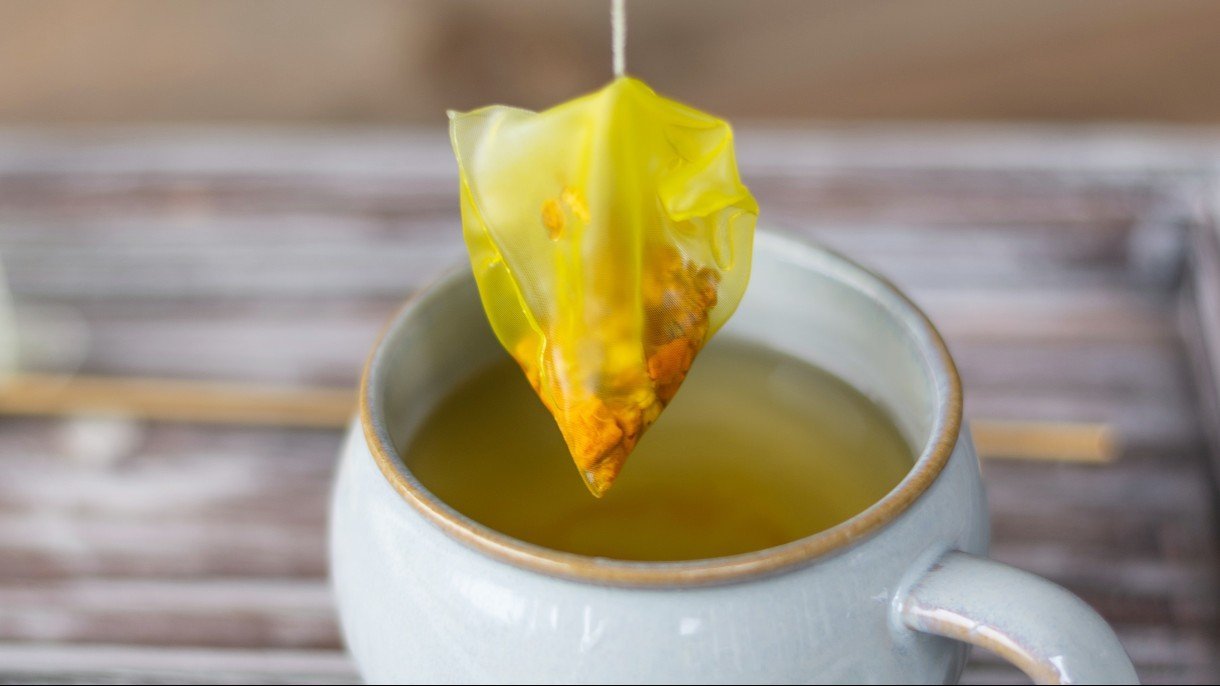Can You Compost Tea Bags?

Tea drinkers across the world might be unknowingly contributing to a great amount of waste when using tea bags.
While loose tea leaves are the most environmentally friendly option, tea bags are used for 96% of daily cups of tea in the UK alone – out of over 100 million daily cups of tea.
The majority of tea bags cannot currently be added to compost due to being made of plastic or containing polypropylene as a sealant. Luckily, many big tea brands have moved on to polylactic (PLA) bags which are made from organic sources such as corn starch and are 100% compostable.
Tea leaves are always compostable, so you can still sprinkle tea leaves in your compost or soil.
How to compost tea bags
Provided you’re buying certified compostable tea bags, you can let the tea bags cool off and then chuck them in with the rest of your food waste. Tearing the bag up will help speed up decomposition as well. Tea bags are nitrogen-rich so they balance out against carbon-rich compost sources.
If you don’t have compostable tea bags but still want to compost the tea leaves, take a pair of scissors and snip open one side before pouring the leaves out. The leftover bag should go in your ordinary bin.
Is tea bad for the environment?
If you drink a lot of tea, the best way to be environmentally friendly is to avoid plastic tea bags, polypropylene, and dispose of your waste properly. Buying loose tea leaves results in minimal waste as well.
There are more compostable tea bags on the market now than there ever have been before. Even if you don’t want to make the swap to loose tea leaves, swap out your current brand for compostable tea bags instead.
Some brands have marked-up compostable products. However, the cost is worth it if it means doing less damage to the environment!
Most tea bags now are made using natural plant fibers, but when they use polypropylene or nylon to heat-seal edges this can create more harm than good.
Though polypropylene is used less in the industry now, in 2018 most tea bags were made from 25% polypropylene. These bags often feel slippery to touch and have heat-sealed edges to stop them from breaking open while brewing.
Polypropylene is a thermoplastic polymer that can take between 20-30 years to decompose in the right conditions. Efforts to recycle polypropylene are slow-going due to its high melting point of 4,640 °F (2,400 °C).
It’s important to remember that fully biodegradable is not the same as garden-compostable as well. Some tea bags may claim to be biodegradable but this just means they will break down eventually, like everything on the planet.
Composting requires specific factors such as heat, sunlight, and moisture, and something that isn’t certified compostable isn’t going to break down for a very long time in garden compost. If you have an industrial composting facility in your area, you may be able to send your tea bags to them.
